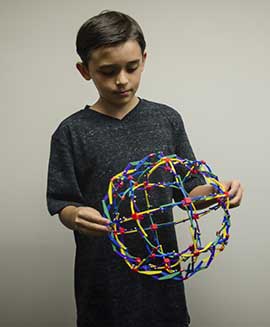Current Projects

Middle School Coping Power
The CPYBP is collaborating with the University of Virginia to test an adaption of the Coping Power program with middle school students encompassing a 25-session student component, a 12-session parent component, and monthly teacher meetings.
The project, which is funded by the Institute of Education Sciences, began in 2014 and will conclude in 2018. Group sessions are conducted at 20 middle schools in Alabama, with 6 students recruited from each school in each of 3 project years (360 total). Pre-intervention, post-intervention, and follow-up assessments include child, parent, and teacher reports and school record review. Constructs assessed as part of this project include emotional/behavioral functioning, school climate, social cognitive functioning, parenting, parental depression, and academic achievement.

Mindful Coping Power
The Mindful Coping Power project is an integration of mindfulness with the Coping Power intervention program to reduce reactive aggression in children.
It is funded through a R34 grant from the National Institute on Drug Abuse (NIDA). The project is being conducted at 4 local elementary schools with 12 students recruited from each school across a two-year intervention period (96 total), with schools divided into one of two conditions: Standard Coping Power or Mindful Coping Power. Group sessions in each condition include a 25-session student component and a 10-session parent component. Pre-intervention, post-intervention, and follow-up assessments include child, parent, and teacher reports and school record review. Constructs assessed as part of this project include emotional/behavioral functioning, mindfulness, hope, gratitude, self-compassion, sleep, temperament, social cognitive functioning, heart rate and skin conductance, parental stress, and parenting behaviors.

Internet-Enhanced Coping Power
The CP-IE project was designed to develop and test the feasibility of a new hybrid version of Coping Power, involving the integration of a shortened version of Coping Power with an Internet component.
Separate webpages for children, parents, teachers, and counselors were designed, with Captain Judgment animated Coping Power videos included on the child and parent webpages. This project is funded by a R34 grant from the National Institute on Drug Abuse (NIDA) and began in Fall 2012. Students were recruited from 8 local elementary schools with 6 students recruited from each school during 2 intervention years (96 total). Both intervention and comparison groups receive a 12-session student component and a 5-session parent component. Pre-intervention, post-intervention, and follow-up assessments include child, parent, and teacher reports and school record review. Constructs assessed as part of this project include emotional/behavioral functioning, social cognitive functioning, substance use, delinquency, and parenting behaviors.

Tornado Project
The tornado project is an ongoing follow-up of 360 participants from a NIDA-funded intervention trial during which the April 27, 2011 tornadoes occurred.
This project funded by the National Institute of Child Health and Human Development examines natural disaster effects on the students and their caretakers over a 4-year period. Annual assessments include adolescent, parent, and teacher reports and school record review. Constructs assessed as part of this project include emotional/behavioral functioning, traumatic events, tornado-related trauma, social support, and parental depression.

Head Start Project
The Power PATH intervention program is a dual-generation preschool preventive intervention being examined in Head Start preschoolers and their parents.
The intervention integrates the PATHS Social Emotional Learning Curriculum with Coping Power parent group components in Head Start settings to increases children's social-emotional competence and self-regulatory skills, to improve parents’ ability to provide safe and supportive home environments and to prepare children for the transition to elementary school. Funding for this project comes from the Administration for Children and Families. Preschoolers are assigned to either the Power Path condition or receive usual Head Start services. Constructs assessed as part of this project include social, cognitive, and physiological measures.


